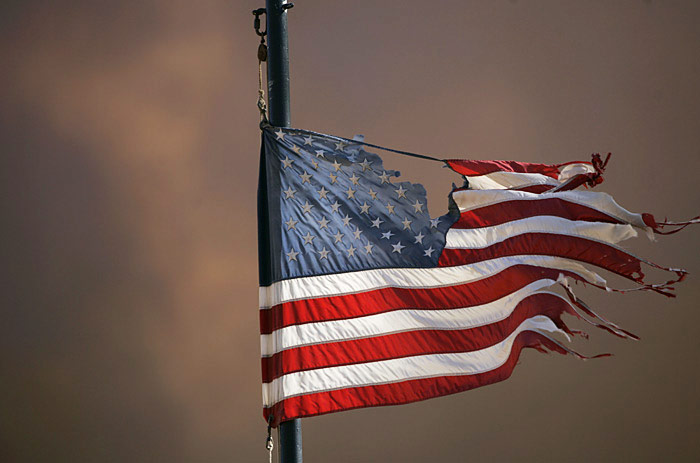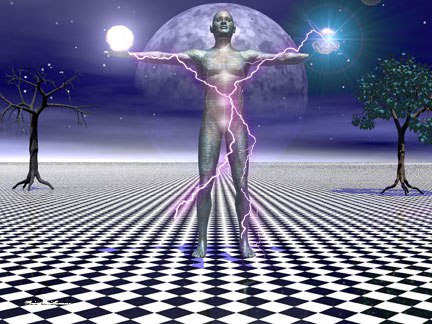We stood overlooking the volcanic gorge beyond town, an easy 2-mile walk from the gate along a streamside trail. Vultures soared a few meters over our heads, and the black and white wings of woodpeckers flashed in flight as they darted from one side of the chasm to the other.
 Steve is local junior high teacher who has taught English in Poland, Ukraine and Russia every summer for nearly 20 years. I asked, given his experience with different peoples, what he thought has gone wrong in America.
Steve is local junior high teacher who has taught English in Poland, Ukraine and Russia every summer for nearly 20 years. I asked, given his experience with different peoples, what he thought has gone wrong in America.
He spoke about how a kind of “cultural idiocy” has taken hold. “In Eastern European countries,” this animated and able teacher who loves teaching said, “Young people are still curious, and ponder things. They discuss important matters with each other.”
He spoke of having to “teach to the test.” Catching himself comparing his own regular year students in America to his summer-school students abroad, he stopped. He didn’t need to say another word.
His thoughtful response brought to mind reading a willfully obtuse mouthpiece for the status quo earlier, a beneficiary of the rot that has always dogged American culture. He wrote in silly, superficial terms about the fraying social fabric, as measured by the slowing rate of new business creation.
American elites simply cannot get their analytical minds and atrophied hearts around the fact that American materialism reached its zenith during the Clinton years, and its nadir during Obama’s tenure.
In the end, they can only wax sentimental about “the grand historical project this country represents.”
Thinking in terms of one’s country as it pertains to the universal aspirations of humanity once had its place. But with the death of America’s soul over a generation ago, the grand historical project America once represented has degenerated into sentimental nationalism, dangerous xenophobia and glorifying militarism.
At bottom, nations are glorified tribes. The issue facing people everywhere now is whether tribal mentality will continue to psychologically and politically rule humankind. It isn’t a question of being overwhelmed by scale; it’s a matter of opening one’s heart and not closing one’s mind.
Faced with the fact of how interconnected all people have become, and how many challenges people share irrespective of the land one happens to live, as well as the question of whether humanity as a whole will survive and thrive, the mentality of ‘my country’ has become inherently small.
It was once possible to love humanity by loving one’s country first, but in a global society, to love one’s country first is to be an enemy of humanity, and to foster the divisions that are ripping the earth and humankind apart.
So the question isn’t, how did America, the last great hope of people everywhere who lost hope of a better future in their own homelands, come to this bleak pass, but how did humanity?
Economic and historical explanations are plentiful, and more or less accurate, but essentially inadequate. The scope and depth of the challenge humankind faces is denied and increased by thinking in terms of particular peoples and the innumerable causes for why humans are destroying the earth and humanity.
Basically, we cannot apply the same underlying habits of mind that produced the crisis of human consciousness to resolving the fragmentation that the human mind has wrought.
the human mind has wrought.
The ultimate cause of division, injustice, conflict and fragmentation is the wrongful use of higher thought. The remedy is therefore gaining insight and understanding of our own minds and hearts as a microcosm of the human mind and heart.
For the first time in the history of life on this planet, a species is faced with the imperative of consciously transforming itself. To be tribal, to think in terms of me and mine, to habitually separate, and to live in terms of psychological memory—these things can no longer be taken as givens. Nothing is immutable, even so-called human nature.
Perhaps on other earth-like planets, where water, warmth and enough geological stability have also given rise to sentient, potentially sapient species, intelligent life did not so stubbornly refuse to learn. But on this earth, which must surely be one of the most beautiful earths in the galaxy, Homo sap has put off self-knowing to the bitter end.
Even so, just as it was at the beginning of Western and Eastern civilization, self-knowing (not self-knowledge) remains the only way ahead, and the only way out. Self-knowing is always of the active and liberating present; self-knowledge is always of the accreting and stultifying past.
Scientists are tinkering with our genes, and technologists are inventing terrestrial and extraterrestrial fantasies to meld mind, body and machine. But transmutation will not happen through any intervention, human or divine.
Radical change begins in the individual, which means learning the art of undivided observation, and doing the spadework of self-knowing every day.
Martin LeFevre

